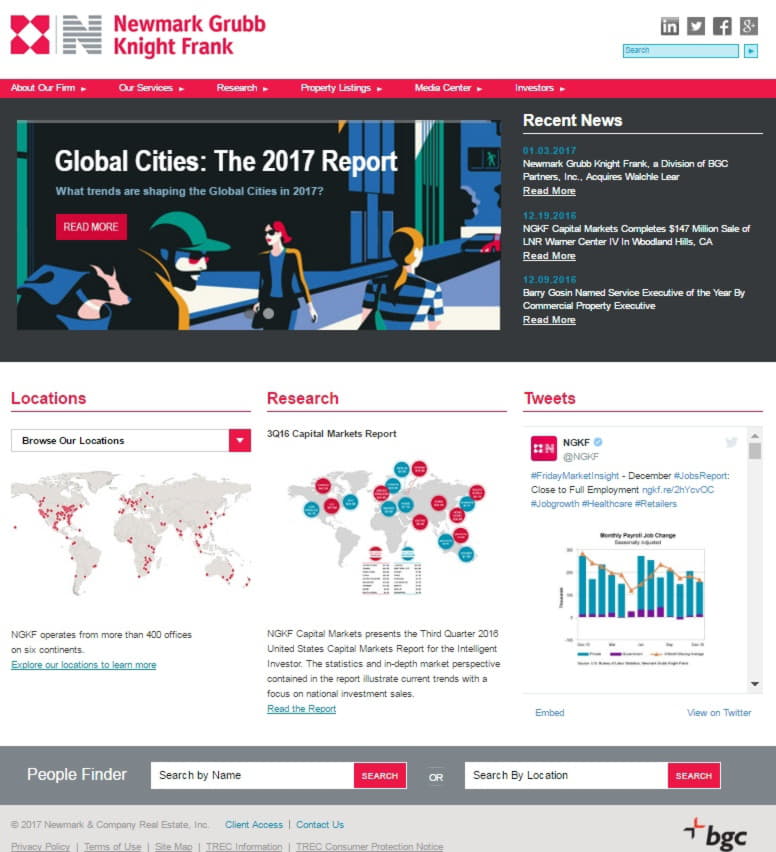
Rick Bunker
Click here for Part I & Part II
Over the past quarter of a century, Rick Bunker has fashioned a career in technology, software, finance and media, after initially studying Russian language and literature.
Now Bunker is leveraging his software skills and a friendship with Dr. Skip Leeds, his cofounder at Prescription Advisory Systems and Technology, to carve out an exciting new path in healthcare. PAST has developed technology that will help doctors quickly identify which patients are at risk for addiction of narcotic drugs, and which are not, helping them quickly write out prescriptions.
“We have found a way to gather out of a public database comprehensive history of a person's controlled substance prescriptions,” Bunker said in an interview with
citybizlist. The software spits out in near real-time an “all-clear go-ahead” to prescribe an effective medicine for a patient without fear of hidden addiction or tolerance, he added.
Bunker has previously held executive-level technology positions at three publicly traded companies – SEIC, ICGE, GSIC (now a division of eBay) – besides being CEO of Reality Online, a Reuters subsidiary. He is now focused on commercializing the technology, and raising funds to advance its growth.
“I think early next year is probably when we will look for funding and it's really just all about hiring salespeople faster than we can organically afford to do so,” he said in the interview.
Edwin Warfield: Would it be fair to say compliance drives your software business?
Rick Bunker: The buying takes place for one of four reasons or a combination of the four reasons and there are different roles within the hospital that care about different ones.
One is compliance; 37 states now have passed legislation demanding that doctors review this information, the history of use of controlled substances before writing new prescriptions. That is obviously terrifically helpful to us because the doctors are faced with an almost impossible task of, in the few minutes they have to spend with each patient, retrieving and analyzing this data on their own and so we automate that and put it right at their fingertips at the point of care analyzed and highlighting the areas of concern.
If you imagine the blood test results when you go to the doctor, if you are like me a lot of the numbers happily are in one column, which means ignore me, you are in the normal range and then if you are me your cholesterol and your blood sugar are over in the wrong column and all the conversation with the doctor takes place about those two numbers. They do not have to pay attention to the other stuff.
Similarly, we go through two years of history of controlled substances, which can be a lot of prescriptions from a lot of doctors for people who are sick and just draw the attention straight to the problem, hey, why are you filling prescriptions at three different pharmacies, why do you have prescriptions for morphine from three different doctors in three months, why are you paying cash when you have got insurance, those things which are indicators of behaviors that suggest tolerance for addiction. Compliance with the law that demands that they check this information is one and we make it possible for them to comply in a practical sense.
Outcomes are another very important reason. Even though it's a business, the hospitals and the doctors still care about treating patients and we help them diagnose something that is very hard for them to find otherwise. Patients try to hide addictions. There is a stigma associated with it and even though it's a predictable comorbidity of the use of these drugs there is still the stigma and shame associated with it so patients hide it from the doctor who can help them and we help uncover that. They care about that for economic reasons as well. If the patient is part of a capitated program; if they are Medicare/Medicaid or if they have purchased their insurance through the exchanges then the hospital is on the hook for all the expense of treating them or with the idea and integrated delivery network and so they want the good outcomes because it saves the money to not have them show up in the emergency department and it gives them a better star rating etc.
There's a direct financial incentive. If you think about it, a doctor is in the business of diagnosing a problem and then treating the problem, it's what they get paid to do. As we help them diagnose a problem then they get to treat the problem and they make money treating that problem. We need to show a little more market traction. We plan to leave this year at a multimillion dollar run rate and I think that's the time when we can go out to the institutions, we can graduate away from the family offices and the Ben Franklins of the world who are established in order to take risks on early-stage companies and get into the institutions because we will be more credible. They don't want to hear a good story, they want to see EBITDA and we'll have that by the end of this year.
Edwin Warfield: What lies ahead?
Rick Bunker: I think early next year is probably when we will look for funding and it's really just all about hiring salespeople faster than we can organically afford to do so. To establish a territory costs us a half a million bucks because you have to hire the people and train them and it takes them a couple months to become effective and then we have five to six months sale cycle. So you have to carry them along for some time before they are producing any revenue and with our organic growth we will be able to add a territory a quarter or so but if we see market traction and we see the land grab opportunity we will go out and try to get the money to add 10 territories right away and that's where we want to be.
Connect with Rick on LinkedIn
Sponsored by:
ABOUT NEWMARK GRUBB KNIGHT FRANK
Newmark Grubb Knight Frank (NGKF) is one of the world's leading commercial real estate advisory firms. Together with London-based partner Knight Frank and independently-owned offices, NGKF's 14,100 professionals operate from more than 400 offices in established and emerging property markets on six continents.
With roots dating back to 1929, NGKF's strong foundation makes it one of the most trusted names in commercial real estate. NGKF's full-service platform comprises BGC's real estate services segment, offering commercial real estate tenants, landlords, investors and developers a wide range of services including leasing; capital markets services, including investment sales, debt placement, appraisal, and valuation services; commercial mortgage brokerage services; as well as corporate advisory services, consulting, project and development management, and property and corporate facilities management services. For further information, visit www.ngkf.com.
NGKF is a part of BGC Partners, Inc., a leading global brokerage company servicing the financial and real estate markets. BGC's common stock trades on the NASDAQ Global Select Market under the ticker symbol (NASDAQ: BGCP). BGC also has an outstanding bond issuance of Senior Notes due June 15, 2042, which trade on the New York Stock Exchange under the symbol (NYSE: BGCA). BGC Partners is led by Chairman and Chief Executive Officer Howard W. Lutnick. For more information, please visit http://www.bgcpartners.com/.


Edwin Warfield, CEO of citybizlist, conducts the CEO Interviews.
If you're interested in reaching CEOs, please contact edwin.warfield@citybuzz.co
Connect on LinkedIn










